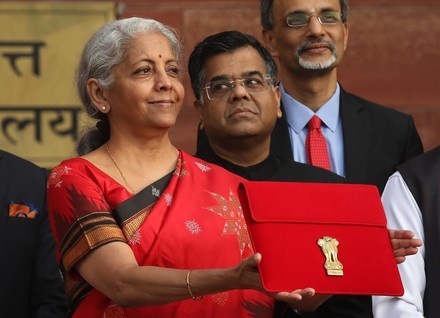|
Travel is the one life goal that increasingly Indians aspire and invest for. Whether you already have a trip planned or are planning your travels for the rest of the year, there seems to be a lot of uncertainty on the cards.
At Basis, we decided to set the record straight and spoke to Tripti Rathod, Co-founder at kyt about all the confusion around travel advise in this discussion.
Q1 - What are the current travel restrictions that one should be mindful of?
Tripti: There are three sets of international travellers.
Indian citizens who live/work/study abroad but are currently in India. -There are no current restrictions to leave India if their flights are operational. However, such travellers will have to be mindful of the restrictions, screening and quarantine requirements in their destination country.
Business/leisure travellers Most companies have cancelled or postponed business trips, and the same should be done for leisure travel as well. It does not matter if you have a visa for travel; most countries have declared the visas invalid. Most airlines are accommodative of rescheduling flights, given the extraordinary circumstances. It is advisable to cancel your trips or reschedule any travel plans internationally. Any such plans should be after three months given the pandemic restrictions. As travel restrictions will begin to be lifted, it will be more for the essential travel rather than leisure.
Indian citizens who are trying to return to India - This is where the highest number of restrictions are present. Starting Sunday, there will be no commercial airlines that will be allowed to land in India from any part of the world. Until then, some flights are currently still operable from other parts of the world, but not Europe.
Q2- What about Indians who are abroad and have visa’s that may soon expire but cannot travel back to India?
Tripti: In these cases, embassies do extend visas. For instance, if you are in the UK and have one week visa but are unable to return because of the restrictions, the UK would extend your visa. While people have had trouble where embassies do not open their operations currently, the embassies have assured that people will not be penalised for overstaying and in some instances have provided extensions as well.
Q3: For travel that people have booked for a couple of months from now, are the embassies open for visa application?
Tripti: All European embassies have shut down their visa applications now, so they are not accepting visa applications completely. However, some Southeast Asian countries are allowing applications for a visa with a Covid waiver that it may be declared invalid if current situations continue. So even if you do receive a visa, it does not guarantee that you will be allowed entry, so do be mindful of this.
Q4: Some of us had travel bookings made in the month of April, should we go ahead if the destination country is safe? What are the refund policies?
Tripti: For cancellations, as I mentioned before, most airlines are allowing cancellations or rescheduling for tickets booked up to the 30th of April. After which they will consider depending on how the pandemic situation remains worldwide. I do believe travel aggregators are offering a refund.
But if you do enter a country, you do run the chance that upon return, you may be quarantined for 15 days. Mindful of that, the advice is to stay put where you are and to avoid travel and medical hassle.
Q5: I had a cruise booked from Singapore to Thailand in May. Should I go ahead and process visa for that? Or should I even go ahead with the plan?
Tripti: Well, you would need two visas for that from Singapore and Thailand. All on-arrival visa in Thailand has been cancelled. Going forward, the visa process for all countries will change and get stricter, adhering to what’s happening in the world right now. My advise; postpone the trip. Most tour companies do give the option of rescheduling, and you can choose a time six months after this which would be a better time for travel.
Q6: What about domestic travel? For people who have made holiday plans or plans to visit families and parents, what is the advise?
Tripti: The misnomer seems to be to avoid international travel. While that is true, the directive is to avoid all travel, given the chance of spread of infection. So airports are taking precautions and is tempting to travel because airlines are dropping fares. Unless you need to be travel or be present for your family, do not travel.
Q7: Could you elaborate on the need for adequate travel insurance?
Tripti: These kinds of situations demonstrate how not having enough medical insurance cover in a foreign country can cause a big hole in the pocket. A lot of time, people would buy travel insurance because it was mandatory and not understand the repercussions. Going ahead, insurance companies will also modify their offering for such situations. This so that you are covered sufficiently in the country that you travel to for the time you spend there.
There are different types of insurance, but trip insurance is different from travel insurance. Trip insurance relates cancellations of flights, baggage loss, and so on. In contrast, travel insurance is what will come in handy if you require medical attention in an emergency in the country you have travelled to.
So going forward, I would recommend that every person buys travel insurance and not just the minimum amount but adequate cover before taking off.
Q8: Can you share your personal experience of what prompts you to start kyt?
Tripti: The genesis of kyt comes from the fact that we love travelling. I had two to three trips planned booked in a year. I hold a Canadian passport, as an OCI, live and work in India and my husband who is the co-founder, holds an Indian passport. So every time we have to travel anywhere, he would be running around to get his visas sorted, whereas in a pre-Covid world I could travel to most countries easily without too many visa restrictions.
But things are changing and now even to go to Europe, Canadians and Americans will need to conduct an ETA which is a travel authorisation. In other times, while people are travelling more than before, governments and embassies will always need to know who is entering their country. kyt which wittingly stands for know your travel and know your traveller. We came together so that we can make sure that whoever needs to know the traveller, has all the information ahead of time and reduce the friction during travel.
Dipika, CIO, Basis: Sure and beyond visas, it is essential to plan for your travel ahead of time financially. We tend to use credit cards much closer to these travels, for varying purposes, which turns out to be expensive. At Basis, we recommend that you invest systematically in a travel fund. Currently, I have travel fund which I am not going to be able to utilise, so it makes sense to park these funds in an emergency fund as a buffer for any unforeseen circumstances.
Tripti: Yes, investing and planning ahead of time for travel is always good. So is making sure you get a good deal for the money you will spend. But in the current circumstances, it is advisable not to make plans in the next month or two just because prices are low.
But in the next six months, things will change, and people will travel. If you want to make, plans for such time take advantage of reasonable travel offers. But do be mindful of the happenings that may impact your travel. Parking your money in an emergency fund where it is liquid and available is sensible.
Session Summary Pointers:
Be mindful of the countries you are planning to travel to, the quarantine restrictions, duration and facilities are different in each case.
Do not apply for visas in the near future and be mindful of the changing regulations when you do apply.
Reach out to airlines and travel companies for rescheduling and refund in case you have made bookings.
Advise to postpone or cancel any leisure travel plans for the next 2-3 months and not make any new ones for another six months
When you do travel, take adequate travel insurance.
Consult an expert before you make travel or travel investing plans and rely on hearsay.
Park your travel fund as an emergency fund, which you can on the Basis platform.
The session was conducted on the 21st of March and some travel restrictions and regulations have changed since then. You can watch the complete Q n A session here.
Everything you need to know about Sukanya Samriddhi Yojana
Nov 13, 2024
Financial Resilience: Lessons from the Women of House of the Dragon
Sep 2, 2024
5 Things You Should Know Before Taking a Loan 👩💼💸
Aug 21, 2024
The Pink Tax: Why Women Pay More for the Same Products 💸👩
Aug 14, 2024
Budget 2024: A Win or a Loss for Women? 🎉💼
Jul 25, 2024
Unlocking your go to guide to navigate Gold 🌟
Aug 28, 2023








